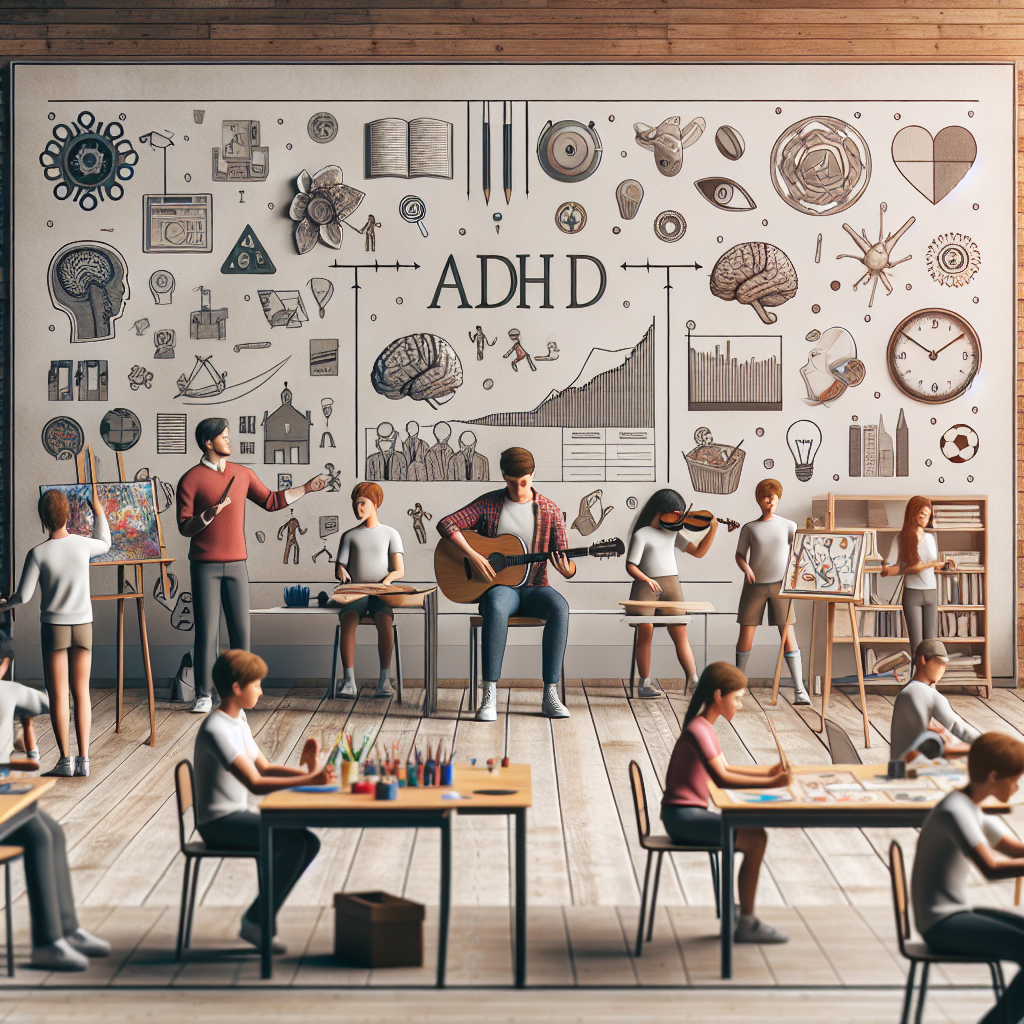Uncovering the Benefits of Extracurricular Activities for Students with ADHD: A Comprehensive Guide for Educators
- mrburge345
- Sep 22, 2024
- 4 min read
As an educator with ADHD, I understand the unique challenges that students with ADHD both struggle with and present in the classroom. Students with ADHD often struggle with focus, impulse control, and hyperactivity. However, a major factor that enabled me to succeed academically and socially was the experience of extracurricular activities. There are many benefits of extracurricular activities for students with ADHD and I can tell you, from my personal experience, that educators can leverage these activities to enhance the learning experience.
Understanding ADHD in Students
By now, all of us should be familiar with the above characteristics of ADHD. However, it is important to understand that individuals with ADHD are, as Neurodiversity Activist Chole Hayden says, "different, not less." Most students with ADHD struggle in the common classroom setting because it is a setting not designed for them. Individualized Education Plans can help with academic accomodations, but what a child truly needs is a positive outlet for their energy. With a means to channel their energy and focus in a positive way outside of normal class hours, a child will be able to learn ways to control and hone their energy and focus within normal class hours.
Benefits of Extracurricular Activities for Students with ADHD
1. Structured Routine
All children crave structure. Children with ADHD need it even more so. Extracurricular activities provide children with ADHD a structured routine outside of the classroom. This routine can help students develop time management skills, improve their organizational abilities, and enhance their sense of responsibility. In grades 4-12, I was a competitive swimmer because swimming was a sport that had the right kind of rhythm and routine that my brand of ADHD needed. I found that when I attended 6AM practices, before school started, I was more alert and ready to face the academic day.
2. Improved Social Skills
Let's face it, the traditional classroom isn't the most social time of day for a child. However, engaging in extracurricular activities allows students with ADHD to interact with peers in a non-academic setting. These social interactions provide valuable opportunities for students to practice communication skills, teamwork, and conflict resolution. Building strong social skills through extracurricular activities can boost students' confidence and self-esteem, leading to improved relationships both in and out of the classroom. I often found time to connect with my swimmer friends and performing arts friends between classes and during lunch periods.
3. Focus and Concentration
Learning what interests a child with ADHD is crucial to their academic success. Activities such as sports, arts, or music require students to pay attention, follow instructions, and stay engaged. But a student will be more motivated to do so because it is an activity that aligns with their interests. Every Neurodivergent Individual has a special interest or a topic of hyperfocus. These topics and activities can go a long way into building this child's success.
4. Stress Reduction
Extracurricular activities offer students with ADHD a healthy outlet for releasing stress and pent-up energy. Physical activities such as sports or dance can promote relaxation, reduce anxiety, and improve mood. By engaging in activities that they enjoy, students with ADHD can alleviate stress and recharge, leading to a more balanced approach to learning and everyday challenges.
How Educators Can Support Students with ADHD in Extracurricular Activities
Educators play a vital role in supporting students with ADHD in extracurricular activities. Here are some strategies to help educators effectively engage and empower these students:
Positive Reinforcement: Recognize and celebrate students' efforts and achievements in extracurricular activities. If the basketball team won a victory the other night, acknowledge it and mention your students who are on the team. The same goes for any fine arts performances you attend. Be sure to congratulate the students for a job well done on their productions and performances.
Collaboration: Work closely with parents, special education teachers, and other support staff to create a supportive and inclusive environment for students with ADHD in extracurricular activities.
Skill-Building: Encourage students to set goals, develop new skills, and build confidence through their participation in extracurricular activities. Help students identify their strengths and interests to foster a sense of accomplishment and belonging.
Enhancing the Educational Experience for Students with ADHD
By integrating extracurricular activities tailored to students with ADHD, educators can create a more inclusive and enriching educational experience. These activities not only provide a platform for students to explore their interests but also offer a holistic approach to supporting their academic, social, and emotional development. Embracing the benefits of extracurricular activities can empower students with ADHD to thrive and succeed in both the classroom and beyond.

In conclusion, extracurricular activities hold tremendous potential for students with ADHD. By recognizing and leveraging the benefits of these activities, educators can create a supportive environment that nurtures the unique strengths and abilities of students with ADHD. Through structured routines, improved social skills, enhanced focus, and stress reduction, extracurricular activities offer a holistic approach to supporting the academic and personal growth of students with ADHD.
Let's continue to explore creative ways to integrate extracurricular activities into the learning journey of students with ADHD, paving the way for a brighter and more inclusive educational experience.
ADHD Tutor, ADHD Education, ADHD students, ADHD, Educators; Neurodivergence



Comments